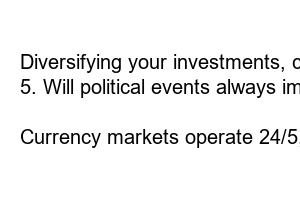과거 환율조회
Past Exchange Rate Inquiry: Unveiling the Truth Behind Currency Fluctuations
Have you ever wondered why exchange rates fluctuate the way they do? Why does the value of a currency rise or fall against another? Understanding the dynamics of past exchange rates can help shed light on these perplexing questions.
In the fascinating world of global economics, exchange rates play a significant role in determining the value of currencies. This blog post aims to explore the intricacies of past exchange rate inquiry, uncovering the factors that influence currency fluctuations and exploring the implications for international trade and personal finance.
1. The Foundation: Exchange Rates and Their Importance
Exchange rates are the prices at which one currency can be exchanged for another. They serve as a crucial tool for conducting international trade, enabling individuals and businesses to convert their domestic currency into foreign currency when venturing into global markets. The past inquiry into exchange rates helps us decipher the underlying mechanisms and trends that shape the world economy.
2. Historical Analysis: Lessons from the Past
Studying the trends in past exchange rate fluctuations can provide valuable insights into the behavior of currencies. By examining the historical data, we can identify patterns and draw conclusions about the factors influencing exchange rates, such as interest rates, economic indicators, geopolitical events, and market sentiment.
3. Economic Indicators: Unmasking the Driving Forces
Economic indicators, including GDP growth, inflation, and employment rates, have a profound impact on exchange rates. Strong economic performance typically strengthens a country’s currency, while weak economic indicators can lead to a depreciation. Delving into past exchange rate inquiry unveils the intricate relationship between economic indicators and currency valuation.
4. Interest Rates: The Power of Central Banks
Interest rates set by central banks also influence exchange rates. Higher interest rates attract foreign investors seeking better returns, increasing demand for the currency and raising its value. Conversely, lower interest rates can weaken a currency. By analyzing past exchange rate inquiry, we can comprehend the role of interest rates in shaping currency valuations.
5. Geopolitical Events: The Wildcards in Exchange Rates
Geopolitical events, such as political instability, trade disputes, or natural disasters, can cause significant fluctuations in exchange rates. Past inquiry into exchange rates highlights how unexpected events can disrupt currency markets and create both opportunities and risks for investors.
6. Implications for Personal Finance: Navigating the Forex Market
Understanding past exchange rates is crucial for individuals involved in personal finance decisions, including international travel, overseas investment, or currency speculation. By staying informed and considering the historical context, individuals can make informed decisions and mitigate risks associated with currency fluctuations.
Summary:
Past exchange rate inquiry provides invaluable insights into the complex world of global economics. By examining historical data and understanding the factors influencing exchange rates, we gain a deeper understanding of how currencies fluctuate. Economic indicators, interest rates, geopolitical events, and other factors all play a role, and studying their past impact allows for better forecasting and decision-making in international trade and personal finance.
FAQs:
1. How often do exchange rates change?
Exchange rates fluctuate every second, as they are determined by the interplay of supply and demand in the global currency markets.
2. Are exchange rates the same worldwide?
Exchange rates vary across different currency pairs and can differ slightly depending on the financial institution or exchange service.
3. Can individuals predict future exchange rate movements?
While it is challenging to predict future exchange rate movements with absolute certainty, studying past trends and understanding influencing factors can help individuals make more informed decisions.
4. How can I protect myself from currency fluctuations?
Diversifying your investments, considering hedging strategies, or using financial instruments like forward contracts can help mitigate the risks associated with currency fluctuations.
5. Will political events always impact exchange rates?
Geopolitical events tend to impact exchange rates, but the extent of their impact depends on various factors, including the magnitude and duration of the event.
6. Can I exchange currencies at any time of the day?
Currency markets operate 24/5, allowing individuals to exchange currencies at any time, subject to market liquidity.

